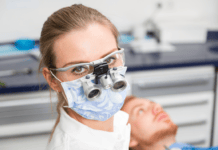A recent article about negativity in the dental hygiene profession was published in Today’s RDH, and the Facebook posts of the article (here and here) resulted in comments, concerns, and questions about personal protective equipment (PPE) and the current state of dentistry. I thought my article brought out an interesting thought process that should be addressed.
One hygienist said, “Our profession is a hot mess.” The comments rolled in from there with a wide range of emotions displayed but almost exclusively negative and disappointed. Corporate dentistry, PPE, lack of benefits, and stagnant salaries were the most common themes.
“When I first graduated from Forsyth, we were respected team members running the perio aspects of the office. Of course, it was private practice and more of a family atmosphere. The corporate takeover occurring in dentistry right now really devalues everyone, even the DDS, who are now employees grinding out a day’s work. Hygienists now have no say in perio protocols. It’s all about billing insurance for the maximum you can milk,” said Debbie Lynn in a Facebook posting. “Hygiene is just one flush from being a conveyor belt of meaningless scaling.”
Many reported the view that corporate dentistry is taking advantage of the hygienist financially, especially more recent graduates. A strong belief persists that corporate offices “maximize profits over ethics” by creating a competitive atmosphere for production bonuses when most of the profit goes back to the corporation. “Prophy mills” was a common theme referring to appointment times as short as 40 minutes, and many were even shorter due to assisted hygiene, allowing for 11-14 patients per day.
Several hygienists commented that new graduates are accepting extremely low hourly pay just to have a position to begin repaying their high student loans.
Personal Protective Equipment
The thought of making personal purchases for protective equipment set off a heated discussion. Many hygienists want to see PPE “mandated/required” as opposed to the wishy-washy language that suggests safety should be a concern. The government regulations need to be nationwide − one set standard for all dental offices. The voiced disgust indicated a belief that so many employers “are not thinking of the true safety factor for all employees” as well as patient safety.
Debbie Lynne states, “No mask is one size fits all. OSHA’s standards for our protection are an obligation, not an ‘oops my bad, I only ordered one mask, so you’re out of luck.’ PPE is a cost of doing business. If employees have to purchase their own PPE, their own HEPA filters, their own HVE attachments so they can properly perform their jobs, then they should get a raise to do so. Without a raise, forcing hygienists/employees to buy PPE and equipment for the office is a pretty significant pay cut. If you have to purchase a mask to fit you, you should be reimbursed.
“It has zero to do with a career being worth investing in. Loupes are an example of personal investments. Supplies and equipment for the office are the cost of doing business, and we are not partners − we’re employees. Having to do this or work unprotected speaks volumes about who you work for. There’s no excuse for expecting workers to buy it themselves or work unprotected − that’s bogus.”
Overall Philosophy of Treatment
Some hygienists report wanting self-supervision, nationwide licensure, and hygiene-owned offices to allow for more ethical patient treatment and compensation of employees.
Commission-based pay, for example, can become rather arbitrary. Commission must always be based on production, not collections. The hygienist does not have control over what is collected, and appropriate compensation should be based on actual work completed.
An overall theme is that ethics don’t exist in the profession’s rush for production and bonuses. Selling dentistry has become the trend, and less attention is paid to patient care and the desire for optimal oral health.
Debbie Lynne states, “Isn’t it so sad that we feel this way? I have always loved my job, and I love my patient-provider relationships. But it’s changed. I’m just ready to stop fighting the greedy production machine.”
It appears that “awesome” offices are becoming a rarity, and dentists are no longer realizing that the hygienist is the foundation and relationship builder of the office.
How do hygienists create change?
The question is, what do we now? How do we change this negativity and animosity into a growing experience that allows more hygienists to take back the joy and respect in our career choice? How do we grow the team to incorporate every members’ strength and unify the respect for each other and individual patient care?
It starts with excellent communication. For so long, we have simply said yes, but clearly, that is no longer working. We must make responsible decisions to accept fair pay that will not undercut our fellow hygienists. We must request fair treatment times per patient, meaning times that we believe can accomplish effective treatment. Let’s treat our patients as if they were our own family expecting the best of us, not as a step to a production goal.
It is time for hygienists to use our voice to create the dialogue to better patient care and increased team respect and harmony. Office meetings and huddles can be a great place to create positive change.
Share your concerns and solutions. Offer opportunities to help other team members grow and create relationships, perhaps share treatment tips that have worked well for you. Pitch in and break down or set up rooms. Do what it takes to help the day flow, whether it be answering the phone, scheduling patients, just something that eases another’s time. This creates goodwill and a team approach to completing tasks to better the overall office atmosphere.
Hygiene skills are essential in relationship building with patients. We spend the time gathering the clinical data, learning what the patient’s expectations and goals are, and delivering that essential information to the dentist. Our value is essential, and now is an excellent time to assert our role in a positive and transformative way.
We ought to be as clear in our own desires and goals for change. State the intention, the purpose, and, most importantly, potential solutions. Be prepared for resistance by arming yourself with facts and examples and a calm, respectful attitude.
Some perceive change as a threat, while others thrive on it. So play ideas to each team member’s strength. Careful, thought-out solutions can remedy stress and create a more harmonious workday.
Being part of a mutually respectful team that places patient care above all else is a goal worth working towards.












